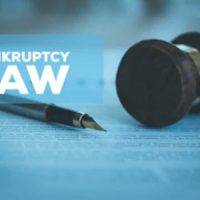How Long Will My Chapter 13 Payment Plan Last?

Chapter 13 is an attractive alternative to Chapter 7 for many people. With a Chapter 13, you don’t give up any property. Instead, you contribute disposable income to your creditors for a period of years. At the end of this payment plan, any unpaid qualifying debt should be wiped out. Chapter 13 is ideal for those debtors who have a lot of non-exempt property or who make too much to qualify for Chapter 7.
But how long will the payment plan be? In our articles, we always say “three to five years,” but precisely how much time will you have? Below, we explain in greater detail how to calculate your repayment period if you choose to file for Chapter 13 protection.
Compare Your Income to the State Median
The duration of your repayment plan depends on your income:
- If you earn less than the median income in your state, your plan will be for three years.
- If you earn more than the median income in Florida, your plan will be for five years.
The applicable median depends on the size of your family and whether you have one or two income earners. The amount changes regularly because of inflation and other factors.
Let’s say Julie and her husband both work and make $55,000. They also have two children. Because they are below the state median for a four-person family, Julie can have a three-year repayment plan.
Determine if You Want Longer to Pay
Even if you qualify for a three-year plan, you might want to have five years. There are some common sense reasons to choose the longer plan:
- The automatic stay is in effect for the duration of the bankruptcy. This will prevent most of your creditors from starting any legal action to collect on debts.
- You need to pay the value of your nonexempt property in a Chapter 13. It might take more than 3 years to do this.
- You have more time to catch up on your home mortgage arrearages. You can spread out missed payments over the course of your plan, and five years gives you more time, thus making it easier to catch up.
Every case is different, and you should talk over your options with your attorney. Generally, many clients benefit from a shorter plan, however that might not be true in your case.
Modifying Your Plan
Life rarely stands still. Many debtors realize they need to change their repayment plan. A judge will allow it in some situations:
- You decide to turn over your collateral. For example, you might give up your home or car and no longer need to pay arrearages or monthly payments.
- Your income suddenly drops. You might have been laid off or you could have fallen ill or disabled.
- You have substantial new expenses, such as health care expenses, that reduce the amount of disposable income you can contribute to your creditors.
If you have questions, contact the Plantation Chapter 13 bankruptcy attorneys at Nowack & Olson today. We have helped tens of thousands of consumers tackle their debt using the bankruptcy system. Call 888-813-4737 today to schedule a free consultation.
https://www.floridabankruptcynow.com/lil-kim-asks-judge-to-drop-her-bankruptcy-case/
